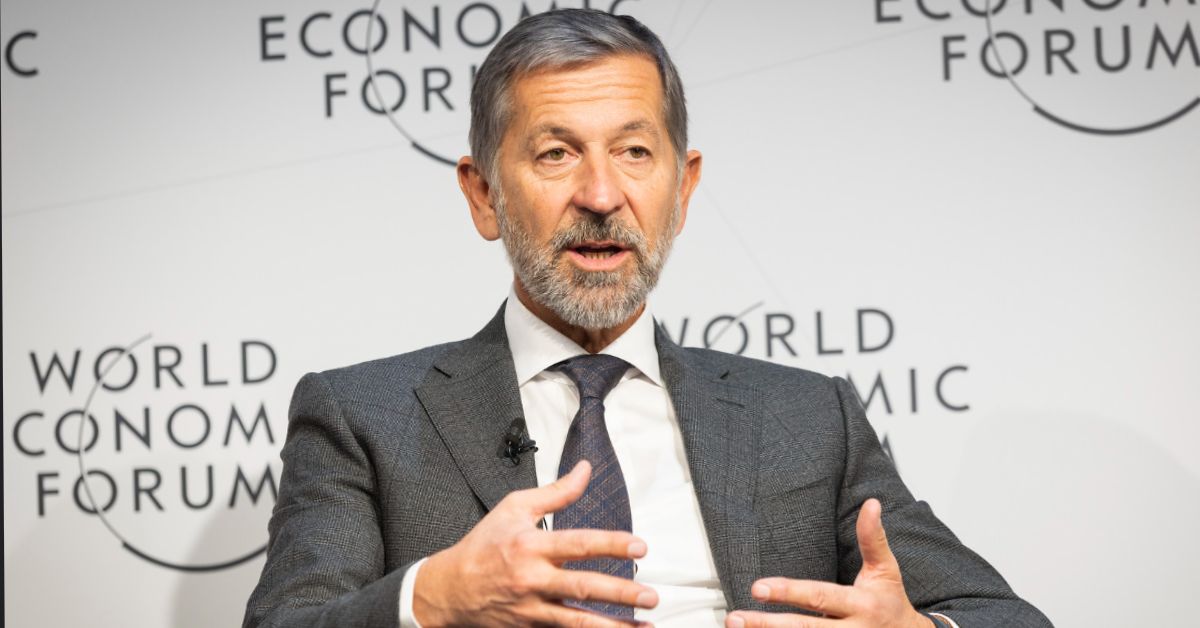DAVOS — At the global stage of the World Economic Forum in Davos 2024, Hans Kobler, the Founder and Managing Partner of Energy Impact Partners, presented a vision for accelerating the world’s transition toward carbon neutrality.
With a keen focus on technology investment in the energy sector, Kobler and his firm navigate the complexities of climate finance, corporate partnerships, and innovation to drive tangible reductions in carbon emissions.
In this exclusive interview with TRENDS, Kobler discusses the urgency of the race toward carbon neutrality, especially considering recent spikes in emissions. He highlights the critical role of Energy Impact Partners in catalyzing this transition, leveraging an impressive $5 billion investment portfolio to support key components of the energy transition worldwide.
The conversation progresses as Kobler shares a narrative of optimism amid challenges, bolstered by an increase in corporate commitments to net-zero goals. However, he stresses the need for concrete action, emphasizing the importance of pragmatic strategies and sustained investment to achieve significant progress.
Funding is not flowing where it’s most needed. The growth will come from emerging markets like India and Southeast Asia.
Hans Kobler, Founder and Managing Partner, Energy Impact Partners
As the discussion explores the intersection of government intervention, business profitability, and global energy dynamics, Kobler provides insights into the changing landscape of climate finance and the necessity for equitable resource distribution. With candor and foresight, he outlines a way forward, acknowledging the complexities and opportunities in pursuing a sustainable future.
Excerpts:
Q: How quickly are we moving toward carbon neutrality, particularly after the rise in emissions we observed last year? And how does your company contribute to reducing carbon emissions?
A: Energy Impact Partners is a technology investor in the energy transition, managing $5 billion globally. We invest in what we believe are the critical building blocks of the energy transition.
We also collaborate with corporate partners to assist them on their journey to net zero. In turn, they help us identify outstanding companies, vet them, and scale them.
We have a different perspective. We are encouraged because investment in the energy transition is increasing. Two years ago, investment in both new and traditional energy technologies reached $1.1 trillion for the first time.
That number has risen to $1.8 trillion. However, it is only 20 to 30 percent of what is needed to achieve net zero. So, significantly more money needs to be invested.
What gives me hope is that last year, the number of companies with some net zero goals reached 2,400, up from 1,200 just a year before.
This shows a realization among companies that they must act, whether they believe in climate change or not, because it is simply good for business.
However, the unfortunate news is that more than 90 percent of these companies still lack a plan or are far from achieving their goals.
But they are trying. This effort will lead to much more innovation and investment in the years to come. We remain optimistic!
Q: Should governments play a role here, enforcing specific standards and cracking down on non-compliant entities?
A: Well, we are not the biggest proponents of government intervention. Relying on plain old profitable business models makes a lot more sense to us, and we are on a good path there.
Clean electricity is the cheapest form of power in many parts of the world. Electrifying transportation is not only beneficial for the environment but also quite enjoyable if you have driven one of the electric cars. So, we have moved past that station. There are certain areas where government can be of assistance.
But the key point is that it needs to make business sense. And we are seeing that happen in many places, though not everywhere.
AI will significantly enhance operational efficiency in corporations; it could reduce the need for software engineers by 20 to 30 percent.
Hans Kobler, Founder and Managing Partner, Energy Impact Partners
Q: Is the funding reaching the areas where it is most needed, or is it still concentrated in wealthier countries?
A: Funding is not flowing where it’s most needed. The growth will come from emerging markets like India and Southeast Asia. For them, the primary concern is securing energy, the lifeblood of their economies.
Moreover, these regions emit a fraction of what the West does. So, it is somewhat simplistic for us in the West to insist they should all adopt clean energy without offering the necessary support and investment.
Q: So, what is stopping that? The political will in the West?
A: There may be some uncertainty about that. Rome was not built in a day; things have to proceed step by step.

Q: Is the 2030 deadline for the global climate and energy transition realistic?
A: Well, there is no actual deadline. It’s a significant, ambitious goal—we need to catch up.
We will not achieve the 1.5 degrees target, but we will do our best and take pragmatic steps forward. We are in the process of rewiring the global economy for net zero. Over the next decade or two, we have to spend $150 trillion.
There’s no silver bullet for this. It’s about a multitude of small actions and diverse solutions coming together. Many corporations must unite because everyone wants to go clean, but no one wants to bear the cost. It has to be affordable, and it has to be reliable.
Combining these three aspects is complex; innovation and collaboration are the only paths forward. At least, that’s how we’ve structured our business model here at Energy Impact Partners.
Q: Is technology being used effectively in the energy transition, or do you see a more significant impact from AI?
A: Well, AI is currently at the peak of its hype cycle. Two years ago, it was all about crypto. AI will significantly enhance operational efficiency in corporations; in our tech firms, it could reduce the need for software engineers by 20 to 30 percent.
Q: AI will also be a significant power draw, requiring much more electricity than in the past. Will this issue be resolved?
You can’t decarbonize the planet with software alone. It will help, but it’s essential to keep things in perspective.








